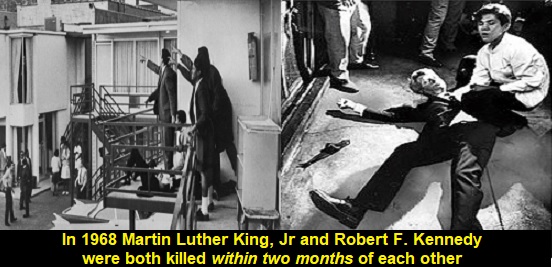“Mother, mother
There’s too many of you crying
Brother, brother, brother
There’s far too many of you dying
You know we’ve got to find a way
To bring some lovin’ here today…”
With these words Marvin Gaye launched his landmark 1971 song entitled “What’s Going On?”
Life seemed to us, in those days, to be turned upside down. How can it be that Martin Luther King Jr AND Robert F Kennedy were BOTH assassinated WITHIN TWO MONTHS of each other? Marvin Gaye, just three years after these assassinations, in his landmark 1971 song, echoed what all of us felt at that time: “Leaders are being killed left and right. What in the world is going on??”
And yet, unfortunately, it was not only true; it was the reality that we lived through in our then young lives. If you have not heard Marvin Gaye’s heartfelt song in a while (believe it or not, this song is now 53 years old!) you can listen to it on YouTube by clicking on this link: https://www.youtube.com/watch?v=H-kA3UtBj4M
The assassinations of Martin Luther King Jr. and Robert F. Kennedy within two months of each other in 1968 marked a dark and turbulent period in our American history. These tragic events not only claimed the lives of two of the most prominent figures of our times, but also cast a shadow over the nation’s aspirations for civil rights, justice, and unity during a tremendous era of social and political change.
Martin Luther King Jr., a charismatic and influential leader of the civil rights movement, was assassinated on April 4, 1968, in Memphis, Tennessee. King had been an advocate for nonviolent protest and had played a crucial role in advancing the cause of racial equality in the United States. His assassination sent shockwaves throughout the country and sparked outrage among those who believed in his vision of a more just and integrated society.
King’s death came at a time when the civil rights movement was at a critical juncture. The struggle for racial equality had achieved significant milestones, such as the Civil Rights Act of 1964 and the Voting Rights Act of 1965, but challenges persisted. King’s assassination underscored the deep-seated racial tensions and the resistance to change that still existed in parts of our American society.
Just two months later! on June 5, 1968, Robert F. Kennedy, a leading political figure and brother of the late President John F. Kennedy, was assassinated in Los Angeles. Kennedy had emerged as a champion of progressive causes, including civil rights and an end to the Vietnam War. His campaign for the Democratic presidential nomination was gaining momentum, and he seemed poised to unite a divided nation.
Kennedy’s assassination was a devastating blow to the hopes of many who saw him as a figure capable of healing the nation’s wounds and bringing us together as a nation. His death left a void in American politics, and the loss of both King and Kennedy in such a short span of time intensified the sense of turmoil and uncertainty in our nation at the time.
The circumstances surrounding these assassinations raised questions and fueled conspiracy theories that persist to this day. James Earl Ray, a convicted felon, was arrested and pleaded guilty to the assassination of Martin Luther King Jr., but doubts about the official narrative linger. Similarly, the assassination of Robert F. Kennedy by Sirhan Sirhan has been the subject of speculation and controversy, with some suggesting a larger conspiracy at play.
These tragic events left an indelible mark on American society, shaping the course of history and influencing the trajectory of the civil rights movement and political discourse to this day. The assassinations of King and Kennedy underscored the fragility of progress and the resistance to change that persisted in certain quarters of the country.
In the aftermath of these assassinations, the United States grappled with the consequences of violence and the challenges of pursuing justice and equality. These events of 1968 served as a stark reminder of the deep divisions within the nation and the ongoing struggle for civil rights and social justice.
In conclusion, the assassinations of Martin Luther King Jr. and Robert F. Kennedy within two months of each other in 1968 were pivotal moments in American history. These tragic events shook the nation and had a profound impact on the civil rights movement and the political landscape. The legacy of King and Kennedy endures, serving as a reminder of the ongoing struggle for justice, equality, and unity in the United States.


Get involved!
Comments